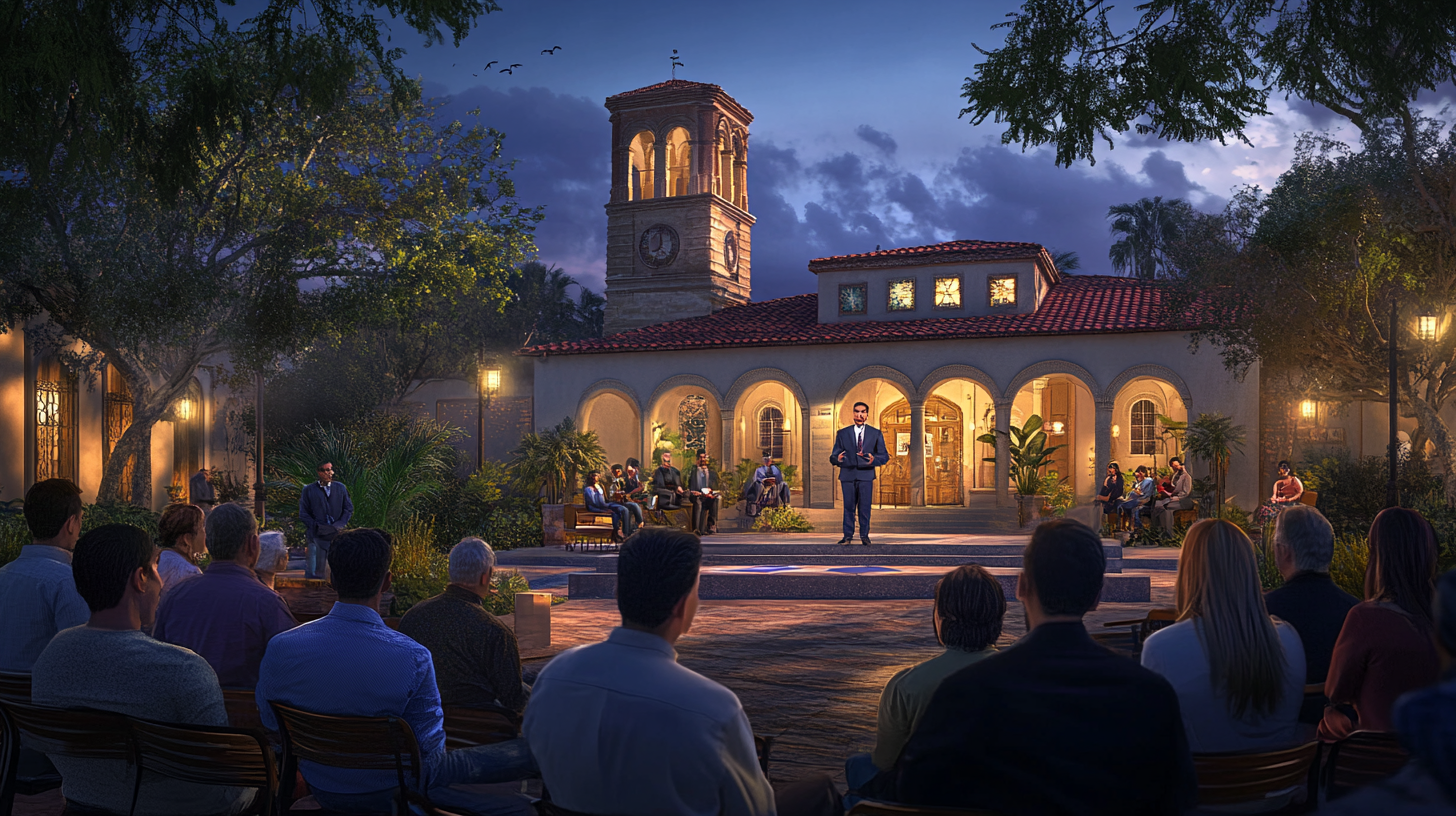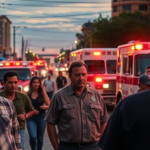McAllen City Manager Isaac Tawil Envisions a Prosperous Decade Ahead
Isaac Tawil, the newly appointed city manager of McAllen, Texas, has outlined an ambitious vision for the city’s future, citing strong financial management and innovative projects as key drivers of growth. With a budget of $652 million, McAllen boasts only $27 million dedicated to debt service, leaving a substantial $625 million available for operations and capital projects. This financial stability, Tawil argues, positions McAllen to seize numerous opportunities over the next decade.
A Solid Fiscal Foundation
Tawil commended the leadership of McAllen’s past mayors and city commissions, attributing the city’s financial health and potential for development to their strategic foresight. “We’ve had exceptional leaders who have laid a solid foundation,” he remarked during a McAllen Citizens League event. “Their energy and vision permeate every department, motivating us to achieve the goals they’ve set.”
Tawil’s enthusiasm is shared by Valley residents, who recognize the significance of a stable budget in facilitating community projects and enhancing local amenities. For the Rio Grande Valley (RGV), this translates into sustained economic development and improved quality of life.
Key Developments on the Horizon
Among the pivotal projects earmarked for McAllen is a major expansion of the city’s airport. Spearheaded by Jeremy Santoscoy, the proposal seeks to double the airport’s gate capacity and improve facilities. Tawil emphasized the necessity of federal funding to actualize this vision, which promises to enhance McAllen’s status as a hub for regional travel and trade.
The city’s infrastructure as a trade gateway is further supported by recent developments at the Anzalduas Bridge. Thanks to a $25 million INFRA grant from the federal government, the bridge is set for a cargo expansion that will be completed by March or April of next year. The expansion is anticipated to significantly boost industrial growth, with positive ripple effects across the RGV.
Juan Olaguibel, superintendent of bridges, expressed optimism about the project’s potential to transform McAllen into a critical cargo node. “This is a game changer, not just for McAllen, but for the entire region. The project will align us with the demands of modern trade and logistics,” he stated.
From Rural Roots to Metropolitan Maturity
Tawil also revealed plans to collaborate with UT-Rio Grande Valley to enhance the Quinta Mazatlan nature reserve, with investments ranging from $20 to $30 million. This partnership exemplifies McAllen’s transition from a rural community to a burgeoning metropolitan area.
Former Mayor Jim Darling, now affiliated with UTRGV, voiced his support for the collaboration. “Quinta Mazatlan is a jewel in McAllen’s crown, and enhancing it through initiatives like this reflects our commitment to environmental stewardship and educational opportunities,” Darling noted.
As McAllen continues its transformation, the city is keen on cultivating its appeal as a destination city. The McAllen Convention Center, which hosts around 650 events annually, plays a pivotal role in driving tourism and supporting the local economy. The influx of visitors bolsters retail and hospitality sectors, contributing to rising property values and high sales tax revenues.
Community Safety and Infrastructure
Tawil emphasized McAllen’s reputation as one of the safest cities in the United States, a distinction that enhances its attractiveness to prospective residents and businesses. This emphasis on safety, coupled with robust infrastructure improvements, positions McAllen as a prime location for both living and investment.
“We are committed to protecting our residents and supporting business growth through well-planned infrastructure,” Tawil stated. “Our ongoing investments in cultural and recreational facilities will continue to draw people to our community, promoting further economic development.”
The Road Ahead
Looking to the future, Tawil outlined plans for additional investment in cultural and recreational activities, including expansions to local parks and facilities. These projects aim not only to strengthen the social fabric of McAllen but to bolster the local economy through increased tourism and resident engagement.
However, achieving this vision will require the collaborative efforts of city officials, residents, and stakeholders. While the prospects appear bright, maintaining fiscal prudence and balancing growth with sustainability will be crucial.
The initiatives proposed by Tawil signify a chapter of expansion and revitalization for McAllen, poised to impact the broader RGV community profoundly. As the city progresses towards becoming a center of commerce, culture, and connection, its development will be closely watched both within and beyond the Valley.
For more information about upcoming developments or to participate in community discussions, residents can contact McAllen City Hall or visit their official website. As this story evolves, we will continue to provide comprehensive coverage on the transformative efforts shaping the future of McAllen and the RGV.







